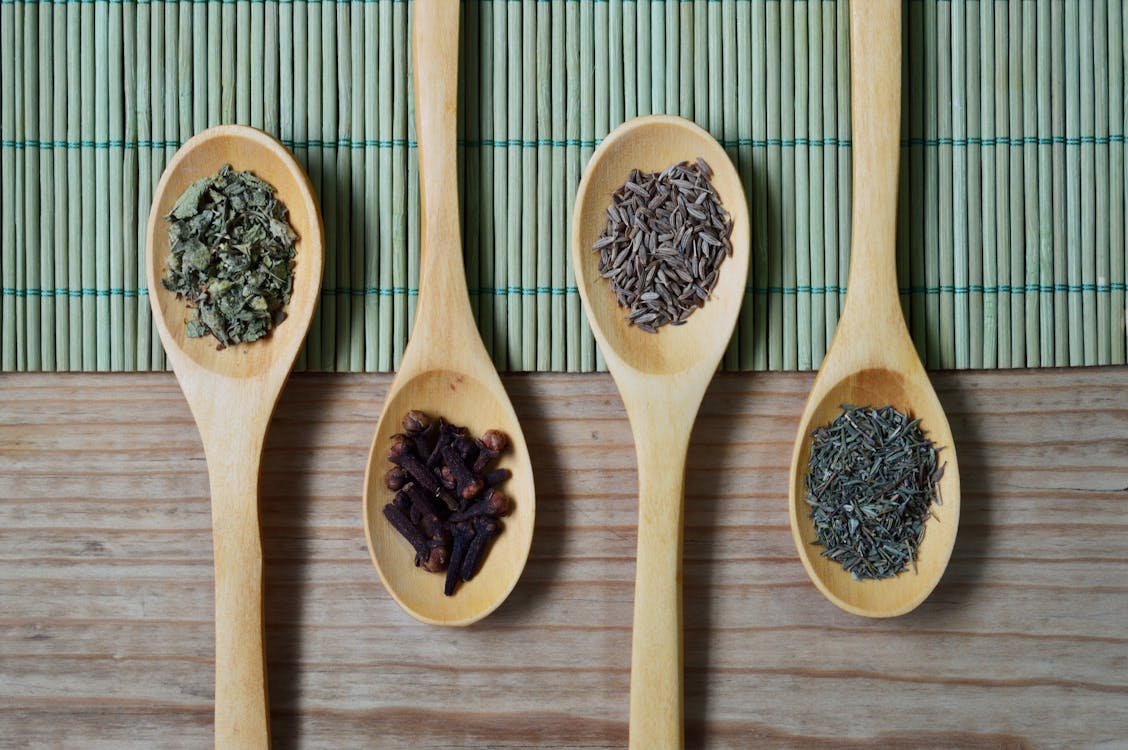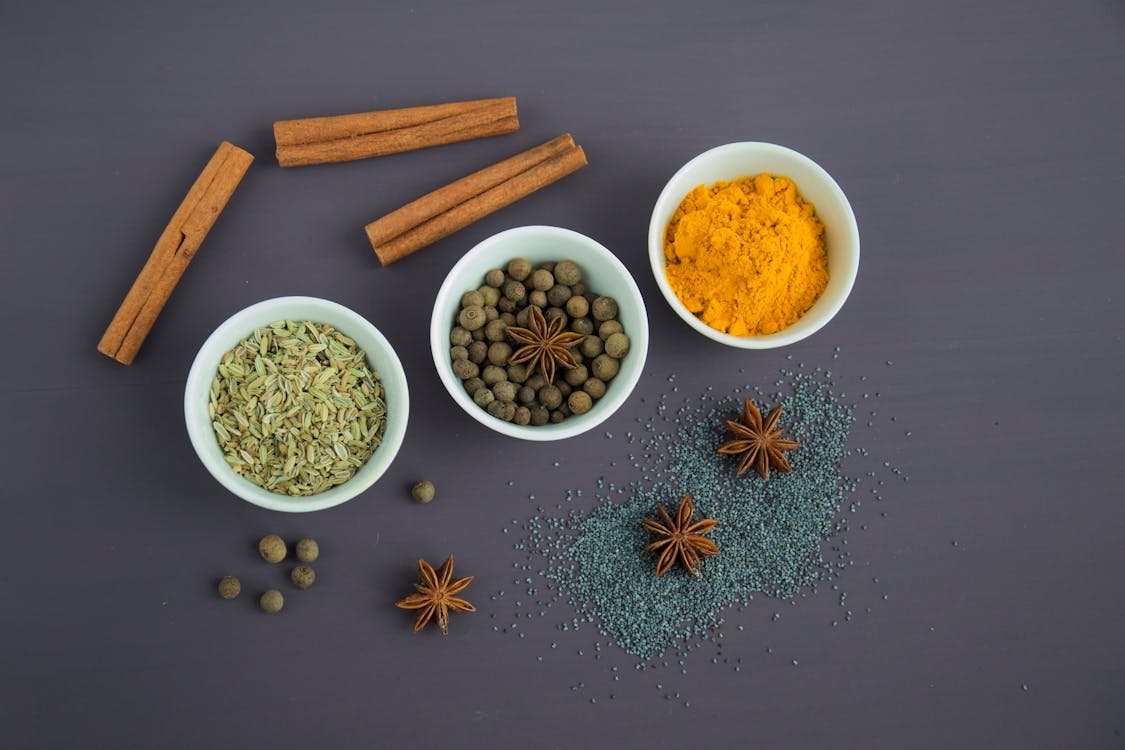13 Herbs That Can Help You Lose Weight
1. Green Tea:
Green tea is rich in catechins, powerful antioxidants that have been shown to boost metabolism and aid in fat burning. Catechins work by increasing the body’s ability to burn calories and fat, particularly during exercise. Additionally, green tea contains caffeine, which can further enhance fat oxidation and energy expenditure.
Green tea is not only rich in catechins but also contains theanine, an amino acid that can synergize with caffeine to improve cognitive function and mood. The combination of these compounds makes green tea a popular choice for promoting overall well-being in addition to its weight loss benefits.
Read Also:
Focus While Studying: 10 Proven Methods
2. Ginseng:
Ginseng is known for its ability to improve energy levels and enhance metabolism, making it a popular supplement for weight loss. By increasing energy expenditure and promoting fat oxidation, ginseng can help individuals burn more calories and lose weight more effectively.
Ginseng is available in different forms, with Asian (Panax) and American (Panax quinquefolius) varieties being the most commonly used. Both types are believed to have adaptogenic properties, helping the body adapt to stress and supporting immune function, which can indirectly benefit weight management efforts.

3. Cayenne Pepper:
Cayenne pepper contains capsaicin, a compound that has been shown to increase metabolism and may suppress appetite. Capsaicin works by stimulating the production of heat in the body, which can boost calorie expenditure and promote fat loss. Additionally, cayenne pepper has been found to reduce hunger and cravings, making it easier to adhere to a calorie-controlled diet.
Beyond its metabolic benefits, cayenne pepper is rich in vitamins A, C, and B6, as well as potassium and manganese. These nutrients contribute to overall health and can help maintain energy levels during weight loss efforts.
4. Cinnamon:
Cinnamon is believed to regulate blood sugar levels and may reduce cravings for sweet and high-carbohydrate foods. By stabilizing blood sugar levels, cinnamon can help prevent spikes and crashes in blood glucose, which can lead to overeating and weight gain. Additionally, cinnamon has been shown to improve insulin sensitivity, allowing cells to better utilize glucose for energy and reducing the risk of insulin resistance and obesity.
Cinnamon is not only versatile in culinary use but also contains antioxidants that can help protect cells from oxidative damage. Its ability to stabilize blood sugar levels can also support energy levels throughout the day, which is beneficial for maintaining an active lifestyle.
5. Dandelion:
Dandelion leaves are rich in vitamins A, C, and K, as well as several minerals including iron and calcium. These nutrients contribute to overall health and can support the body’s nutritional needs during weight loss.
Dandelion acts as a natural diuretic, promoting the excretion of excess water weight from the body. While this may result in temporary weight loss, it is important to note that the effects of dandelion on long-term weight management are limited. However, dandelion can be a useful addition to a weight loss regimen, particularly for individuals looking to reduce bloating and water retention.
6. Ginger:
Ginger aids digestion and can help control appetite, making it a valuable herb for weight loss. By promoting healthy digestion and preventing gastrointestinal discomfort, ginger can support overall digestive health and optimize nutrient absorption. Additionally, ginger has been found to increase feelings of fullness and reduce hunger, which can help prevent overeating and support weight loss efforts.
In addition to its digestive benefits, ginger contains gingerol, a bioactive compound with potent anti-inflammatory and antioxidant effects. These properties may help reduce oxidative stress and inflammation associated with obesity and metabolic syndrome.
7. Fenugreek:
Fenugreek is known for its appetite-suppressing properties and ability to stabilize blood sugar levels. By slowing the absorption of carbohydrates and reducing the release of glucose into the bloodstream, fenugreek can help prevent spikes in blood sugar that may lead to cravings and overeating. Additionally, fenugreek has been shown to increase feelings of fullness and reduce hunger, making it easier to adhere to a calorie-controlled diet.
Fenugreek seeds are a good source of soluble fiber, which can promote feelings of fullness and help regulate appetite. They also contain iron, magnesium, and manganese, supporting overall health during weight loss efforts.

8. Garcinia Cambogia:
Garcinia cambogia contains hydroxycitric acid (HCA), a compound that has been shown to inhibit fat production and suppress appetite. HCA works by blocking the enzyme citrate lyase, which is involved in the synthesis of fat from carbohydrates. Additionally, HCA has been found to increase levels of serotonin, a neurotransmitter that regulates appetite and mood, leading to reduced food intake and feelings of fullness.
Garcinia cambogia supplements often include calcium, chromium, and potassium, which can help support electrolyte balance and overall health during weight loss programs.
Read Also:
Healthy Foods For Keeping Healthy Weight In Winters Cold
9. Black Pepper:
Black pepper contains piperine, a compound that has been shown to enhance metabolism and improve nutrient absorption. By increasing the bioavailability of nutrients and promoting thermogenesis, black pepper can support weight loss and fat burning. Additionally, black pepper has been found to reduce fat levels in the blood and inhibit the formation of fat cells, making it a valuable addition to a weight loss regimen.
Black pepper’s piperine enhances the bioavailability of curcumin from turmeric, making it an effective combination for supporting overall health and well-being.
10. Turmeric:
Turmeric, a vibrant yellow spice commonly used in curry dishes, contains curcumin as its active compound. Curcumin has garnered attention for its potential benefits in weight management. Beyond its role in reducing inflammation and promoting fat metabolism, curcumin is also known for its antioxidant properties. Antioxidants help neutralize harmful free radicals in the body, which can contribute to oxidative stress and inflammation—both factors associated with obesity and metabolic syndrome.
Curcumin has been shown to inhibit the growth of fat cells and reduce fat tissue formation, leading to decreased body fat levels. Additionally, turmeric has antioxidant properties that can protect against oxidative stress and inflammation, which are associated with obesity and metabolic syndrome.
Turmeric’s curcumin has been studied for its potential anti-inflammatory and antioxidant properties, which may support overall health and well-being during weight loss efforts.
11. Cumin:
Cumin is believed to boost metabolism and may reduce cholesterol levels, making it beneficial for weight loss. By increasing the production of digestive enzymes and promoting the breakdown of fats and carbohydrates, cumin can enhance calorie burning and fat loss.
Furthermore, studies suggest that cumin may improve insulin sensitivity—a crucial factor in regulating blood sugar levels—and lipid profiles. By enhancing insulin sensitivity, cumin helps cells better respond to insulin, reducing the risk of insulin resistance and associated metabolic disorders. This can support overall metabolic health and contribute to long-term weight management.
12. Licorice Root:
Licorice root helps reduce body fat mass and may lower LDL cholesterol levels, supporting weight loss and cardiovascular health. Licorice root contains compounds that inhibit the enzyme responsible for storing excess calories as fat, promoting the breakdown and utilization of stored fat for energy.
Moreover, licorice root has been associated with lowering LDL cholesterol levels, often referred to as “bad” cholesterol. High levels of LDL cholesterol are a risk factor for heart disease and other cardiovascular complications. By helping to manage cholesterol levels, licorice root supports cardiovascular health in addition to its potential weight management benefits.
Licorice root is commonly used in herbal teas not only for its subtle sweetness but also for its digestive benefits. It can aid in soothing gastrointestinal discomfort and promoting digestive health, which is important for overall well-being during weight loss journeys.

13. Bitter Orange:
Bitter orange, also known as Citrus aurantium, has gained popularity in weight loss supplements due to its content of synephrine, a naturally occurring compound with potential benefits for fat burning and appetite suppression. Synephrine is structurally similar to ephedrine, a stimulant that was once widely used for weight loss but has since been restricted due to safety concerns.
Synephrine works by stimulating receptors in the body that increase metabolic rate and energy expenditure. This thermogenic effect can lead to greater calorie burning and potentially support fat loss efforts. Additionally, synephrine has been reported to have mild appetite-suppressing effects, which may help individuals reduce food intake and adhere to a calorie-controlled diet.
It’s important to note that while bitter orange supplements are marketed for weight loss, they should be used with caution. Synephrine can increase heart rate and blood pressure, similar to ephedrine, and may pose risks for individuals with cardiovascular conditions or those sensitive to stimulants. Therefore, consulting with a healthcare provider before using bitter orange supplements is advisable, especially if you have underlying health conditions or are taking medications.




